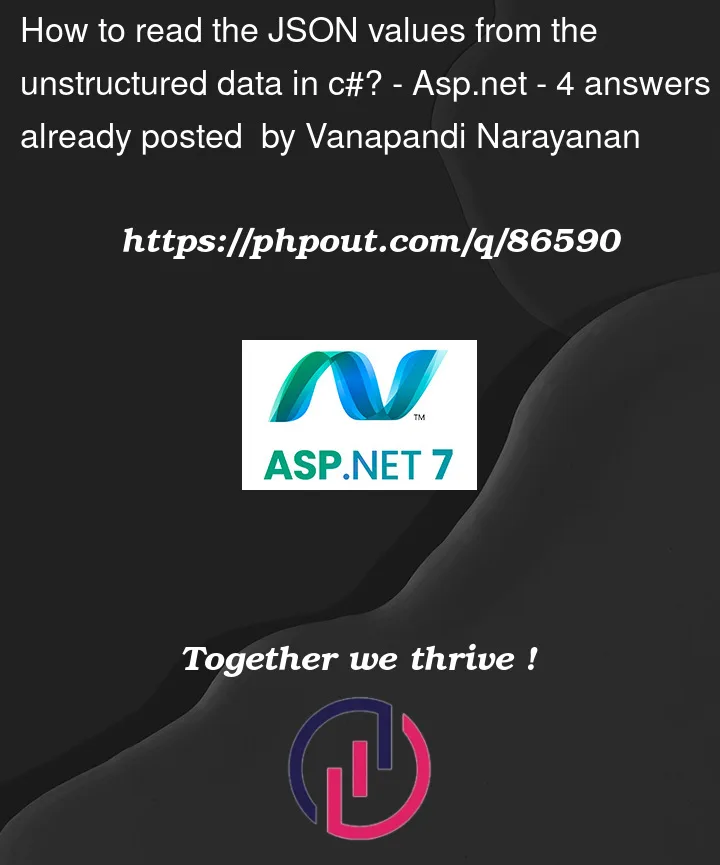{
"id": "zd_tags",
"value": [
"bp_ticket;pazure_server"
]
},
{
"id": "itd_priority_1",
"value": 900
},
{
"id": "impacted_services",
"value": [
"Serverdown0208_2"
]
},
I am unable to read and deserialize the JSON into my objects which throws the below error.
"$.incidentTags[6].value": [
"The JSON value could not be converted to System.String[]. Path: $.incidentTags[6].value | LineNumber: 0 | BytePositionInLine: 1856."
]
Below is my current structure to deserialize it.
public class incidentTag
{
public string id { get; set; }
public string[] value {get;set;}
}
Here is the problem, Some tag has no array " "id": "itd_priority_1" but many have an array of value.
What is the best way to handle this scenario?




4
Answers
Old Post for fixing this issue
The Above link helped me to resolve the problem and one more thing is, need to add the reference for "Microsoft.AspNetCore.Mvc.NewtonsoftJson;".I guess, .Net core 6 is using the System.text.Json which has an issue or does not support this operation.
Cant make a comment so having to make an answer.
Previously I have used a dynamic for if the data is unstructured or I don’t know the data structure. An example of how I have used a dynamic is below
I presume similar could be applied to your use case
Either you can create a custom json converter to handle the parsing the way you want it, there are many examples you can look for it.
Or as an altenative you can use
JObject, something like this, parse the json and visit theJPpropertyinJObjectand check whether that is array or object or any other primitive type.I usually create a json constructor in this case